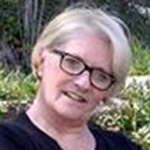Over the years, we’ve had so many wonderful and moving talks at the TEDWomen conference, but perhaps one of the most striking was Malawi activist Memory Banda. The amazing 18-year-old presented at last year’s event – and inspired us all with her story.
Memory began her talk by reciting a poem written by another young woman she knows, 13-year-old Eileen Piri, entitled “I’ll Marry When I Want.” Memory told the audience that the poem might seem odd written by a 13-year-old girl, but in her home country of Malawi, she called it “a warrior’s cry.”
She told the audience how there was a traditional rite of passage in her country in which young girls who have just reached puberty were sent to “initiation camps” to learn how to please men sexually. As part of their initiation, a man visits the camp and the young girls are forced to have sex with him. Many girls end up pregnant or with sexually transmitted diseases, including AIDS.
Memory chose a different path. She refused to go to the camp. She wanted to continue her education and had dreams of being a lawyer. She became an activist and, with the help of the Girls Empowerment Network (Genet), a group dedicated to ending the practice of forced child marriage in Malawi, she began talking to other young women about their experiences.
At the time, Malawi had the highest rates of child marriage in the world. A 2014 Human Rights Watch report outlined the shocking statistics: one out of two girls in the country on average will be married by her 18th birthday. “In 2010, half of women aged 20 to 24 years were married or in unions before they were 18. Some are as young as 9 or 10 when they are married.”
Memory continued with her own schooling and began teaching other young women how to read and write. With the support of Genet and Let Girls Lead, she worked on a storytelling project in which girls were encouraged to share their stories – the dreams they had for themselves, as well as the obstacles they faced – in art, poetry and storytelling.
Memory says that participating in Genet’s River of Life project was transformational for her: “Until then, I always thought I was the only one who suffered. But sharing my story gave me strength to know that I wasn’t alone.”
As she explained in her TED Talk, the girls published their stories and they became part of a campaign to outlaw child marriage in Malawi. A female chief from Memory’s community joined the fight, and the girls worked with her and other village chiefs to develop bylaws banning the initiation camps and child marriage. Eventually, their advocacy went all the way to President Mutharika, who agreed with the girls that the sanctioning of child marriage was a “national disgrace.”
Last year, Malawi officially outlawed the marriage of girls younger than 18 years old. But, as Memory explained in her TED Talk, changing the law is one thing, enforcing it is quite another. Today, she continues to work on the issue, not only for young women in rural areas who might not be aware of the new protections that exist for them, but for young women in other countries where laws still need to be enacted.
Since Memory appeared at TEDWomen in 2015, response to her TED Talk in Malawi and around the world has been phenomenal – it has been viewed over 1.1 million times! This visibility has helped raise Memory’s profile as a global advocate and Rise Up girl leader. Memory is a globally renowned champion for girls’ rights and an advisor to global leaders on the importance of investing in girls. She is currently beginning her sophomore year of college in Malawi, achieving her dream of completing her education.
The TEDWomen conference is sold out now but we have decided to offer discounted registrations that include all conference activities except for guaranteed seats in the theater. These registrations provide comfortable viewing in the Simulcast Lounge where everyone gathers during breaks between sessions. Find out more at the TEDWomen website.











